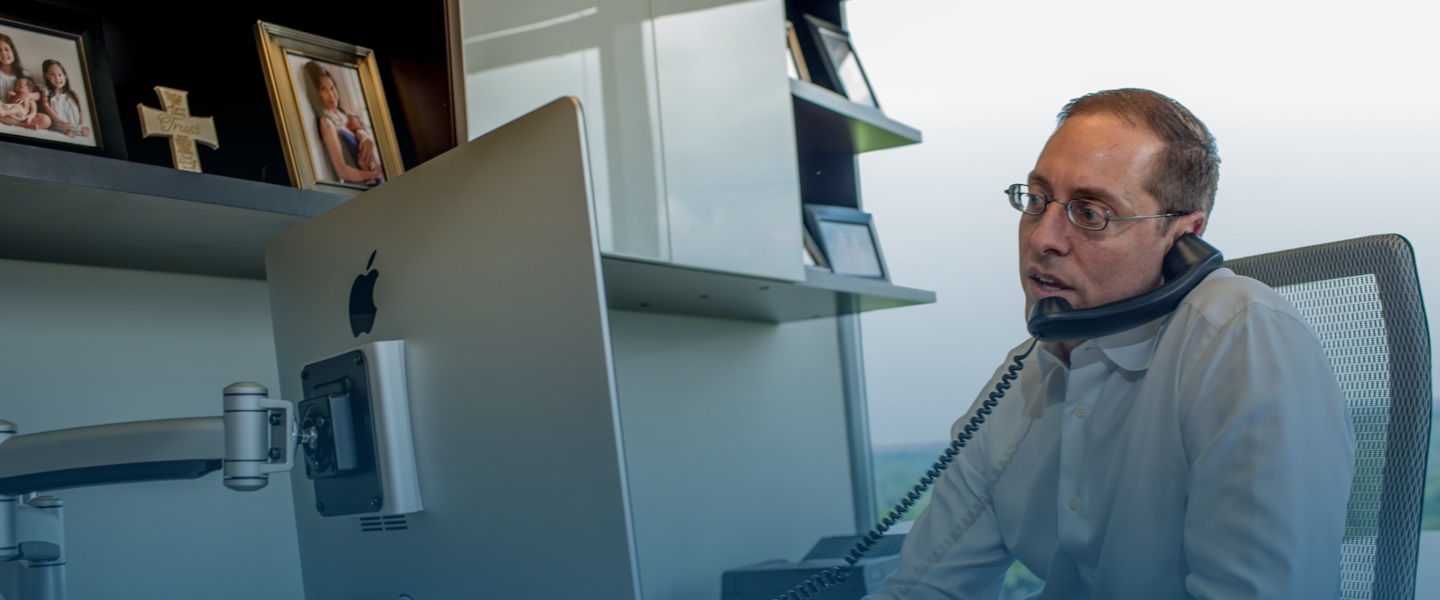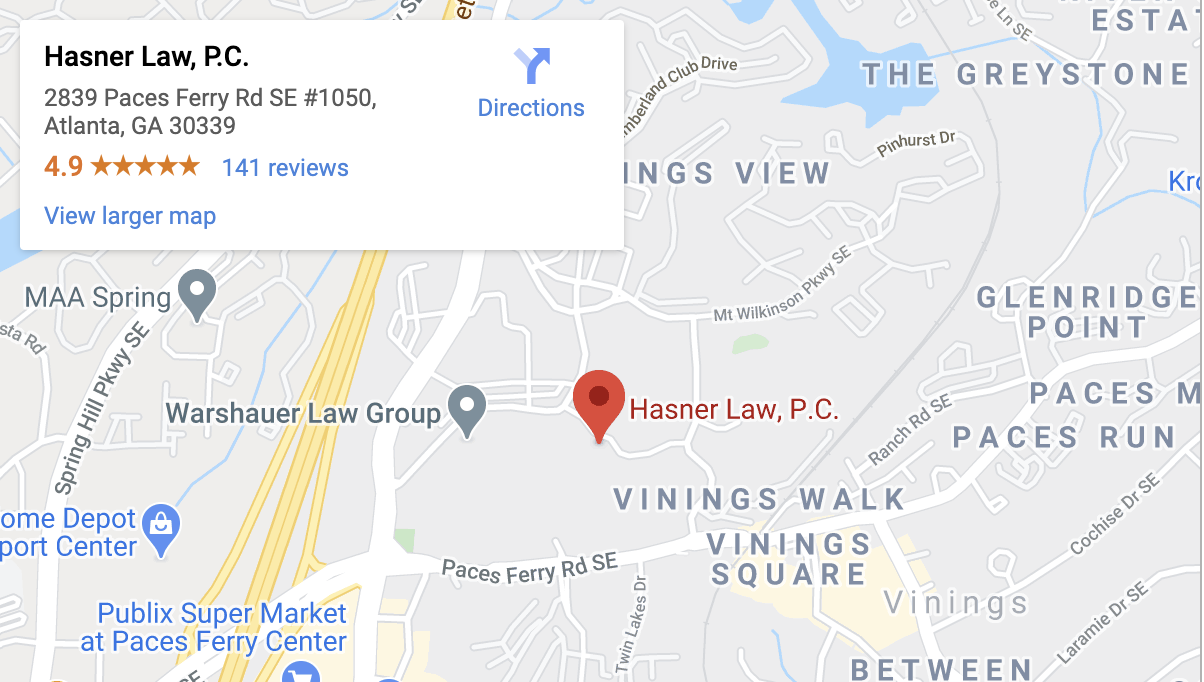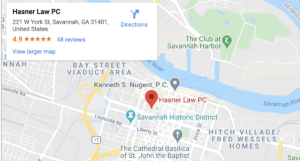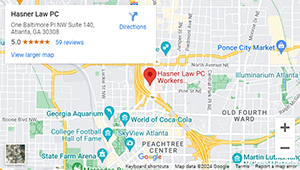Experienced Premises Liability Attorneys in Savannah, Georgia
Slip and fall accidents can occur without warning and may leave victims with serious injuries, high medical expenses, and lasting physical limitations. Property owners and businesses in Georgia have legal responsibilities to maintain safe premises and correct hazardous conditions. Injured individuals may have a legal right to pursue compensation through a premises liability claim when they fail to do so.
Hasner Law, PC, represents clients in Savannah injured in slip-and-fall incidents on commercial, residential, or public property. We work with injured victims to evaluate their legal options, determine fault, and build strong claims for financial recovery. Legal action may be available under Georgia law, whether the fall occurred in a grocery store, apartment complex, or government-owned location.
Speak with a Savannah slip and fall attorney today to learn more about your legal rights. Hasner Law offers free consultations and does not charge legal fees unless compensation is recovered. Call (912) 234-2334 or submit a request through the contact form to begin your claim evaluation.
Savannah Slip & Fall Guide
- Why Trust Hasner Law with Your Savannah Slip and Fall Claim
- Compensation Available in Slip and Fall Accident Cases
- Common Causes of Slip and Fall Accidents in Savannah
- How Liability Works in Georgia Premises Liability Cases
- Slip and Fall Claims Against Businesses or Government Entities
- Georgia Law on Comparative Negligence in Slip and Fall Cases
- Statute of Limitations for Slip and Fall Lawsuits in Georgia
- Steps to Take After a Slip and Fall Accident in Savannah
- Contact a Savannah Slip and Fall Lawyer Today
- Frequently Asked Questions About Slip and Fall Claims in Savannah
Why Trust Hasner Law with Your Savannah Slip and Fall Claim
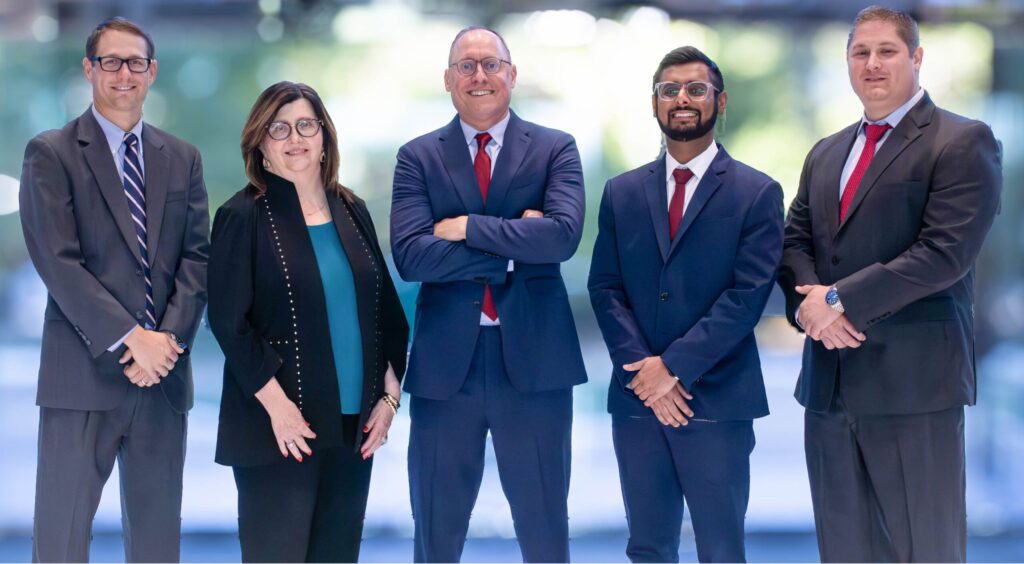
Proven Results in Premises Liability Cases
Hasner Law has a strong record of success representing injury victims in Savannah and throughout Georgia. Our law firm has recovered compensation for clients injured in falls on poorly maintained properties, wet floors, and unsafe stairwells. Each case is approached with careful evaluation of liability, documentation, and damages.
Familiarity with Savannah Courts and Insurance Procedures
Attorneys at Hasner Law regularly handle cases in Chatham County State Court and Superior Court. We are familiar with local procedural requirements, common defense tactics insurance carriers use, and the strategies needed to present a clear, evidence-supported claim.
Coordination with Investigators and Safety Professionals
Slip and fall claims often depend on establishing liability through physical evidence. Hasner Law works with safety professionals, medical experts, and liability consultants to identify negligent conditions and support claims with admissible documentation.
Focus on Communication and Client Access
Hasner Law prioritizes client communication. Each client receives case updates, documentation support, and direct access to legal counsel throughout their case. We are committed to ensuring that each client understands the legal process and the progression of their claim.
Free Consultations and Contingency-Based Representation
Hasner Law provides free initial consultations and handles all slip and fall claims on a contingency fee basis. There are no upfront costs, and clients do not pay legal fees unless compensation is successfully recovered.
Compensation Available in Slip and Fall Accident Cases

The compensation available in a Georgia slip and fall claim depends on the extent of the injury, the cause of the fall, and the damages sustained. Under Georgia law, individuals may pursue economic and non-economic damages if the property owner or another party is legally responsible for the hazard.
Medical Expenses
Compensation may include reimbursement for hospital visits, follow-up care, physical therapy, imaging studies, surgeries, prescription medications, and assistive devices. Future anticipated medical needs may also be recoverable if supported by medical records and physician evaluations.
Lost Income and Diminished Earning Capacity
If the injury caused a temporary or permanent inability to work, the claimant may seek lost income. This includes past wages missed during recovery and projected losses due to reduced capacity to return to the same job or earn similar income.
Pain and Suffering
Non-economic damages include physical pain, emotional distress, loss of mobility, sleep disruption, and loss of enjoyment of life. These damages are based on the injury’s severity, the recovery period’s length, and how the injury affects daily functioning.
Permanent Disability or Disfigurement
In severe cases, injuries such as fractures, traumatic brain injuries, or spinal trauma may result in permanent limitations. Compensation for these conditions may be based on physician testimony, imaging results, and independent evaluations.
Loss of Consortium
In certain situations, a spouse may file a claim for loss of consortium. This refers to the loss of companionship, assistance, or marital relationship caused by the injury.
To recover compensation, claimants must present evidence linking the property hazard to the fall and proving the extent of damages. Typical documentation includes medical records, wage statements, photographs of the hazard, and witness testimony.
Common Causes of Slip and Fall Accidents in Savannah

Slip and fall incidents occur in a wide range of settings. Property owners are responsible for maintaining walkways, entrances, staircases, and floors in a reasonably safe condition. Liability may arise when they fail to inspect for hazards or address known problems.
Frequent causes of slip and fall injuries in Savannah include:
Wet or Slippery Surfaces
Spills in grocery store aisles, water tracked into building lobbies, and mopped floors without signage can cause sudden falls. Inadequate signage or failure to clean spills promptly may support a liability claim.
Uneven or Broken Flooring
Loose tiles, cracked concrete, and torn carpeting are common hazards in commercial buildings and apartment complexes. Property owners are expected to inspect and repair flooring in areas accessible to the public.
Poor Lighting in Stairwells and Parking Lots
Inadequate lighting can obscure hazards such as elevation changes, debris, or potholes. Lighting issues are common in parking structures, stairwells, and exterior pathways.
Obstructions or Debris
Items left in walkways, including cords, tools, or merchandise, can result in tripping incidents. In retail settings, these conditions often occur during restocking or when displays are not properly secured.
Inadequate Handrails or Damaged Steps
Missing handrails, broken steps, and loose fixtures may cause falls on stairs. Building codes require certain safety features, and violations may contribute to liability.
Outdoor Hazards from Weather
Entrances and sidewalks may become slick during rainy conditions. To reduce hazard exposure, property managers are responsible for installing non-slip mats, warning signage, and maintaining drainage systems.
Each incident requires investigation into the property owner’s duties, whether they knew or should have known about the hazard, and whether they took reasonable steps to correct or warn of the risk.
How Liability Works in Georgia Premises Liability Cases

Under Georgia premises liability law, property owners and occupiers have a legal duty to maintain their premises reasonably safe for lawful visitors. Whether a party may be held liable depends on the relationship between the injured person and the property owner and the facts surrounding the hazard.
Legal Status of the Injured Person
Georgia law differentiates between invitees, licensees, and trespassers:
- Invitees are individuals invited onto the property for business purposes, such as store customers. Property owners owe invitees the highest duty of care and must regularly inspect and fix dangerous conditions.
- Licensees are individuals allowed on the property for non-commercial reasons, such as social guests. The owner must avoid willfully harming licensees and warn them of known hidden dangers.
- Trespassers are those who enter without permission. The duty of care owed is limited, though exceptions exist in cases involving children or known habitual trespassers.
Proving Liability in a Slip and Fall Accident
To establish a valid claim, the injured party must prove that:
- A dangerous condition existed on the property.
- The owner or occupier knew or should have known about the condition.
- The owner failed to fix the hazard or warn visitors promptly.
- The hazard directly caused the injury.
Evidence such as inspection logs, surveillance footage, and maintenance records may be used to demonstrate negligence. Prompt documentation of the hazard and injury is key to preserving the claim.
Slip and Fall Claims Against Businesses or Government Entities

In Savannah, slip and fall accidents commonly occur in privately owned commercial properties and on premises owned or operated by public agencies. The legal process and notice requirements differ depending on the type of property and entity involved.
Claims Against Businesses
Retail stores, restaurants, gyms, and office buildings are required to maintain reasonably safe premises for customers and lawful visitors. The business may be held legally responsible when an injury occurs due to a preventable hazard, such as an unmarked spill or broken flooring.
In these cases, the injured party must establish that the property owner or manager failed to remedy or warn of the condition despite having knowledge or a reasonable opportunity to do so.
Insurance adjusters representing commercial property owners often investigate claims promptly. Photographic evidence, witness statements, incident reports, and medical records are central in establishing the connection between the hazard and the injury.
Claims Against Government Agencies
Different procedures apply when a fall occurs on public property, such as a city sidewalk, courthouse, school, or government office. Georgia law requires injured parties to submit a formal notice of claim to the appropriate government agency within a limited timeframe. For example, claims against a city or county must generally be submitted within six months of the incident.
Failure to submit a timely notice may result in dismissal of the claim, regardless of fault. The notice must include the time, place, and circumstances of the accident, the nature of the injury, and the damages being sought. Additional requirements apply to claims against state agencies or the Georgia Department of Transportation.
Legal representation is often necessary to ensure that the notice of claim is formatted correctly, submitted to the correct office, and filed within the required deadline.
Georgia Law on Comparative Negligence in Slip and Fall Cases
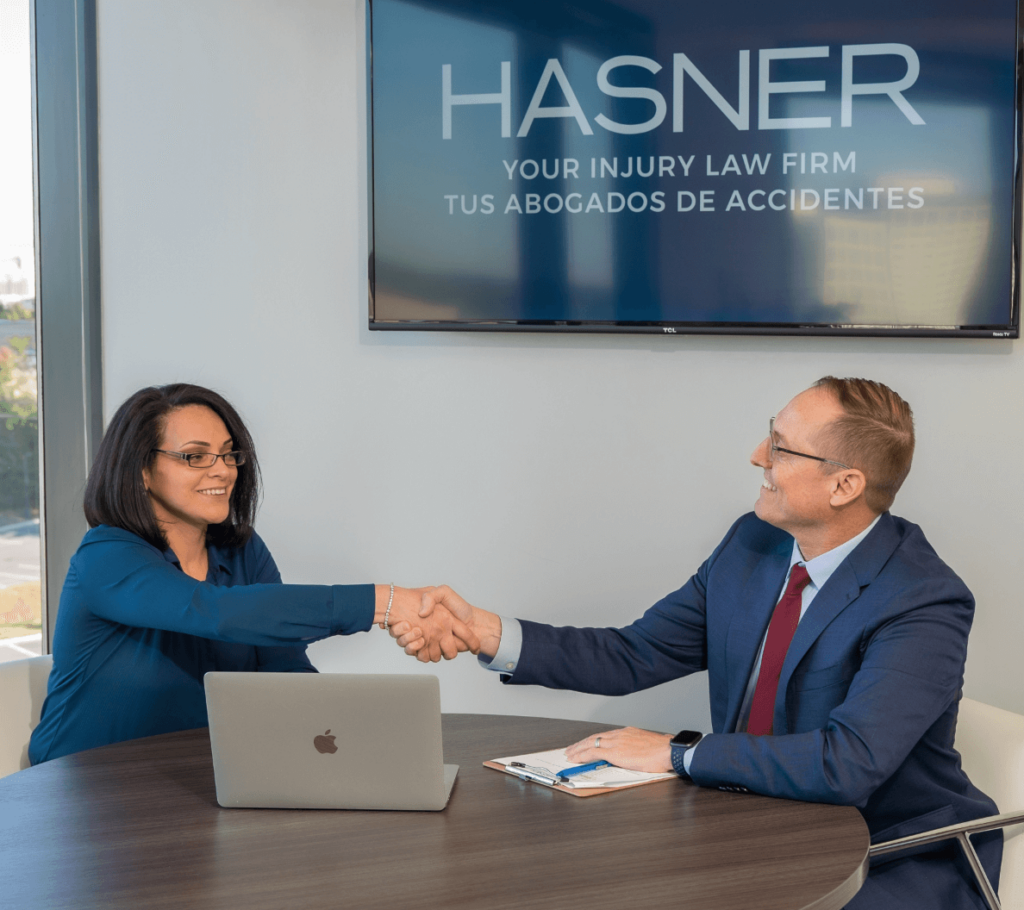
Georgia applies a modified comparative negligence rule when determining liability in personal injury cases. This rule affects both eligibility for compensation and the total amount recoverable.
If a jury determines that the injured person was partially at fault for the accident, the compensation award may be reduced by the percentage of fault assigned. For example, if the injured person is found to be 25 percent responsible, the total compensation would be reduced by 25 percent.
However, if the injured person is found to be 50 percent or more at fault, they are barred from recovering any damages under Georgia law.
Common arguments made by property owners and insurance companies include:
- The hazard was open and obvious.
- The injured person was distracted.
- The hazard was marked with signage or cones.
- The injured person wore inappropriate footwear.
To defend against these claims, the injured party may rely on photographs of the scene, witness testimony, surveillance footage, and expert analysis. Prompt evidence preservation is necessary to limit the effectiveness of comparative fault defenses.
Statute of Limitations for Slip and Fall Lawsuits in Georgia
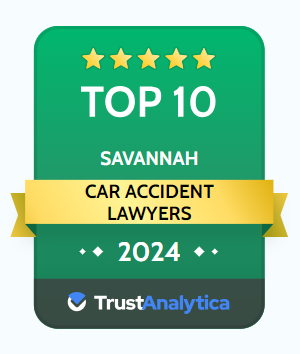
Legal deadlines determine how long a person has to file a slip and fall lawsuit. In Georgia, the statute of limitations for personal injury claims, including those involving premises liability, is generally two years from the incident date.
If the claim is not filed in court within that period, the injured party may lose the right to seek compensation.
What Are the Specific Timeframes?
- General Personal Injury. Two years from the date of injury.
- Wrongful Death (due to a fall). Two years from the date of death.
- Claims Against a Government Entity. Formal notice of claim must typically be filed within six months for municipalities or one year for state entities.
Certain factors may affect how the statute of limitations is applied. For example, if the injured party is a minor or legally incapacitated during the incident, the statute may be tolled until legal capacity is restored.
Legal advice is often necessary to determine the correct deadline and ensure that procedural requirements are met before filing.
Steps to Take After a Slip and Fall Accident in Savannah

Actions taken immediately after a slip and fall accident can directly affect a person’s ability to file a successful claim. Timely documentation, medical evaluation, and legal guidance can help preserve evidence and clarify liability.
1. Report the Incident
The incident should be reported to the property owner, manager, or on-site personnel as soon as possible. For commercial properties, this may involve completing a formal incident report. A copy of the report should be requested for personal records.
2. Seek Medical Care
Even if injuries appear minor, medical evaluation should occur promptly. Diagnostic records serve as evidence of the injury and help establish a timeline. Treatment from a licensed provider is also necessary to pursue compensation for medical expenses.
3. Document the Hazard
If conditions permit, photographs should be taken of the location, including any visible hazards, lighting conditions, or surrounding circumstances. Witness contact information should also be collected when available.
4. Preserve Footwear and Clothing
Items worn during the fall, especially shoes, may be used as evidence. These items should not be cleaned or altered before legal consultation.
5. Avoid Recorded Statements
Injured parties should be cautious when speaking to insurance representatives. Recorded statements may be used against the claimant. Consultation with a legal professional before providing a statement is recommended.
6. Contact Legal Counsel
An attorney can assist with collecting evidence, evaluating liability, and filing all necessary documentation. Early legal involvement may prevent mistakes that could affect the outcome of the claim.
Contact a Savannah Slip and Fall Lawyer Today
If you were injured due to a slip and fall in Savannah, legal representation can help you pursue compensation for medical expenses, lost income, and personal harm. Hasner Law represents clients in Savannah and the surrounding area in premises liability claims.
Free consultations are available to review your case and explain your legal options. There are no legal fees unless compensation is recovered. Call (912) 234-2334 or complete the firm’s contact form to speak with a Savannah personal injury attorney.
Frequently Asked Questions About Slip and Fall Claims in Savannah
What if I slipped in a store but did not report it immediately?
Delayed reporting may complicate the claim, but it does not automatically bar recovery. Other forms of evidence, such as surveillance footage or witness testimony, may still establish liability.
Can I sue if there was a wet floor sign?
Possibly. The presence of a warning sign does not always eliminate liability. Courts consider whether the warning was clear, timely, and appropriately placed.
How long does it take to resolve a slip and fall claim in Savannah?
The timeline varies. Simple claims may settle in a few months, while more complex cases involving disputes over liability or high-value damages may take over a year.
Do I need evidence that the property owner knew about the hazard?
Georgia law requires proof that the owner knew or should have known about the condition. This can be shown through inspection records, prior complaints, or when the hazard existed.
Can I still file a claim if I was partially at fault?
Yes, as long as you were less than 50 percent responsible. Your compensation may be reduced in proportion to your share of fault.
Hasner Law: Savannah Injury & Workers’ Compensation Attorneys
221 W York St,
Savannah, GA 31401
Ph: 912-234-2334

